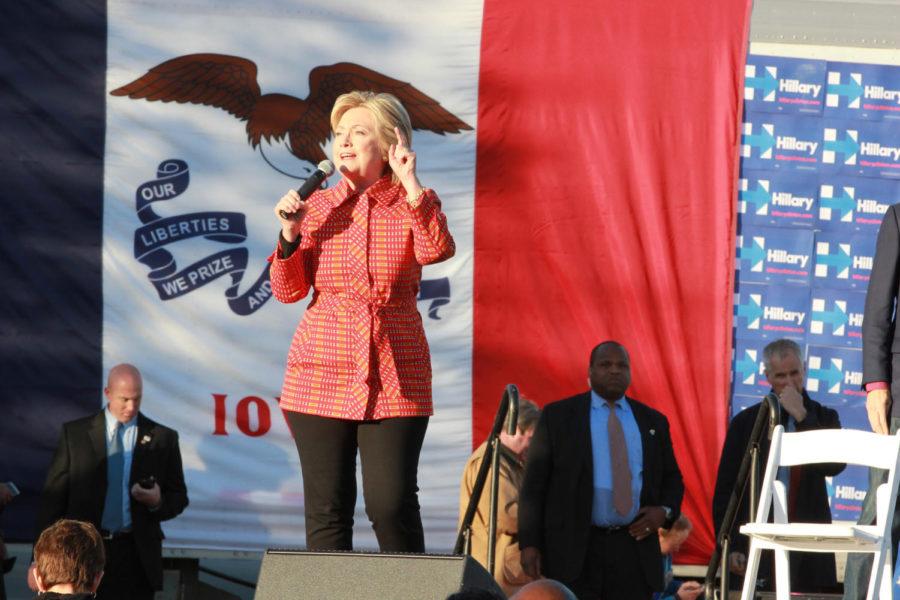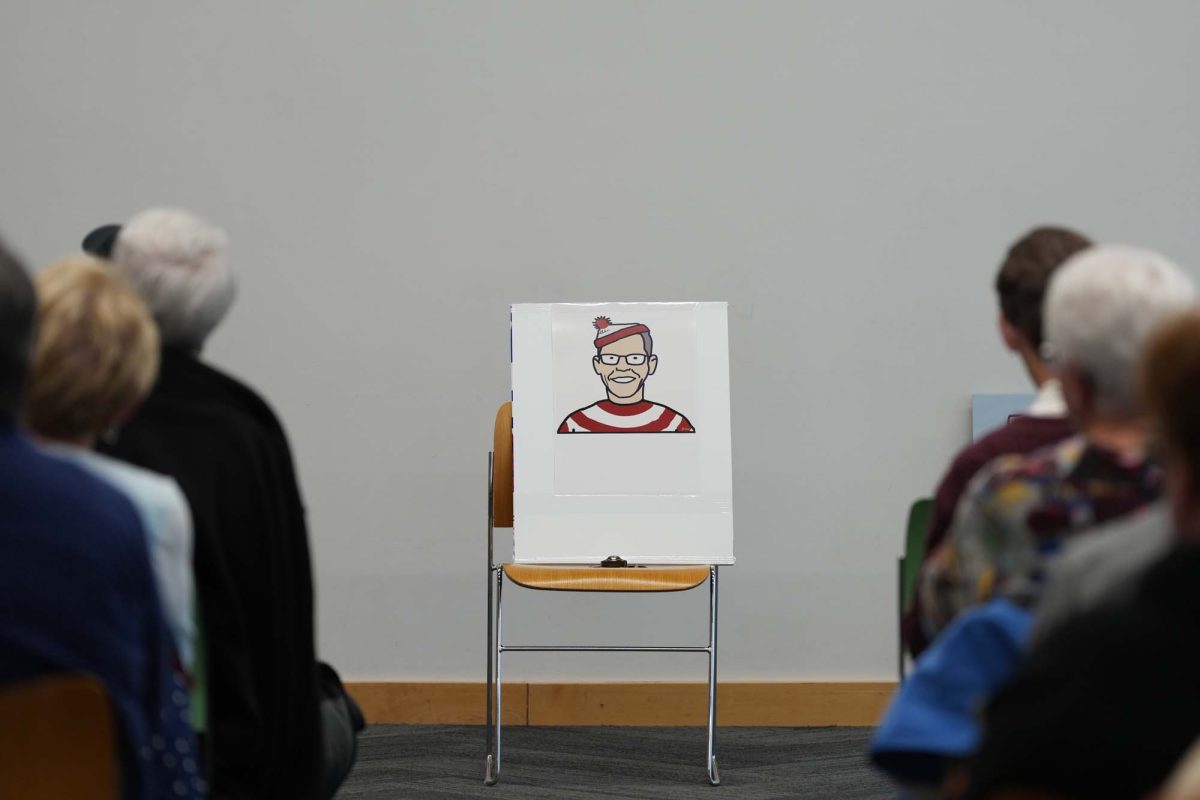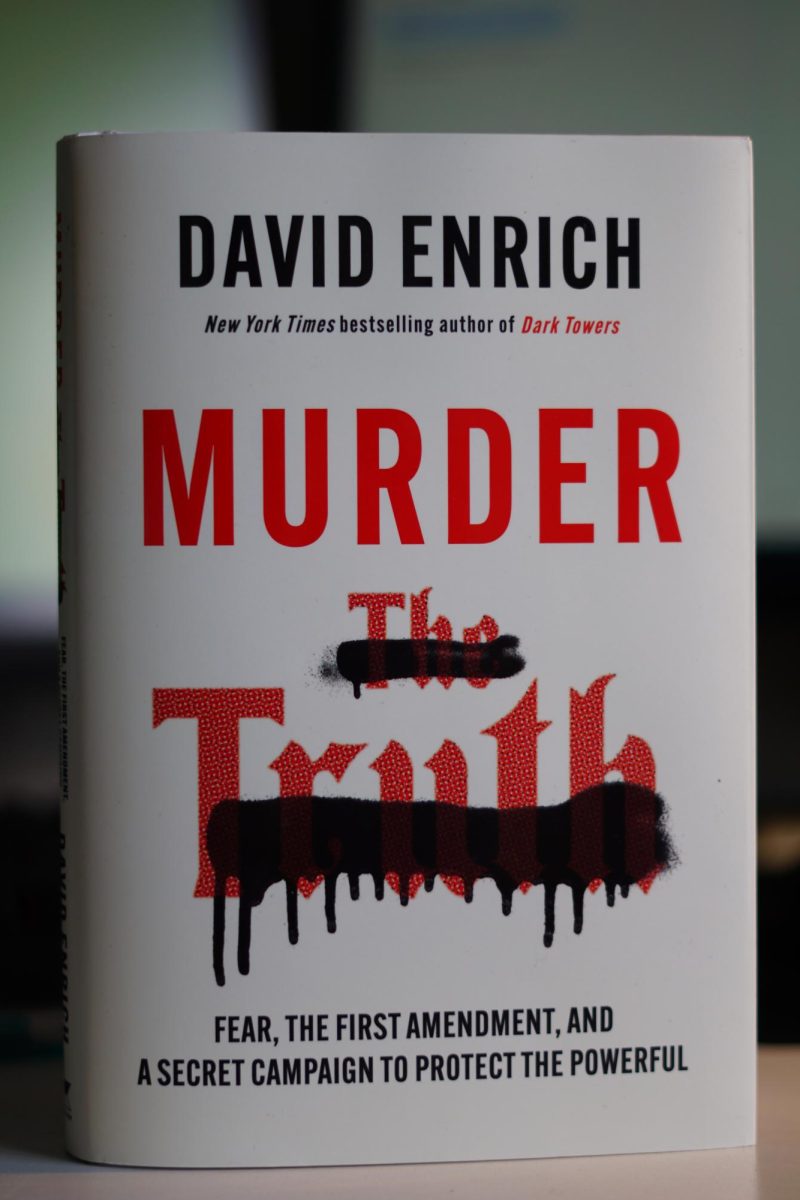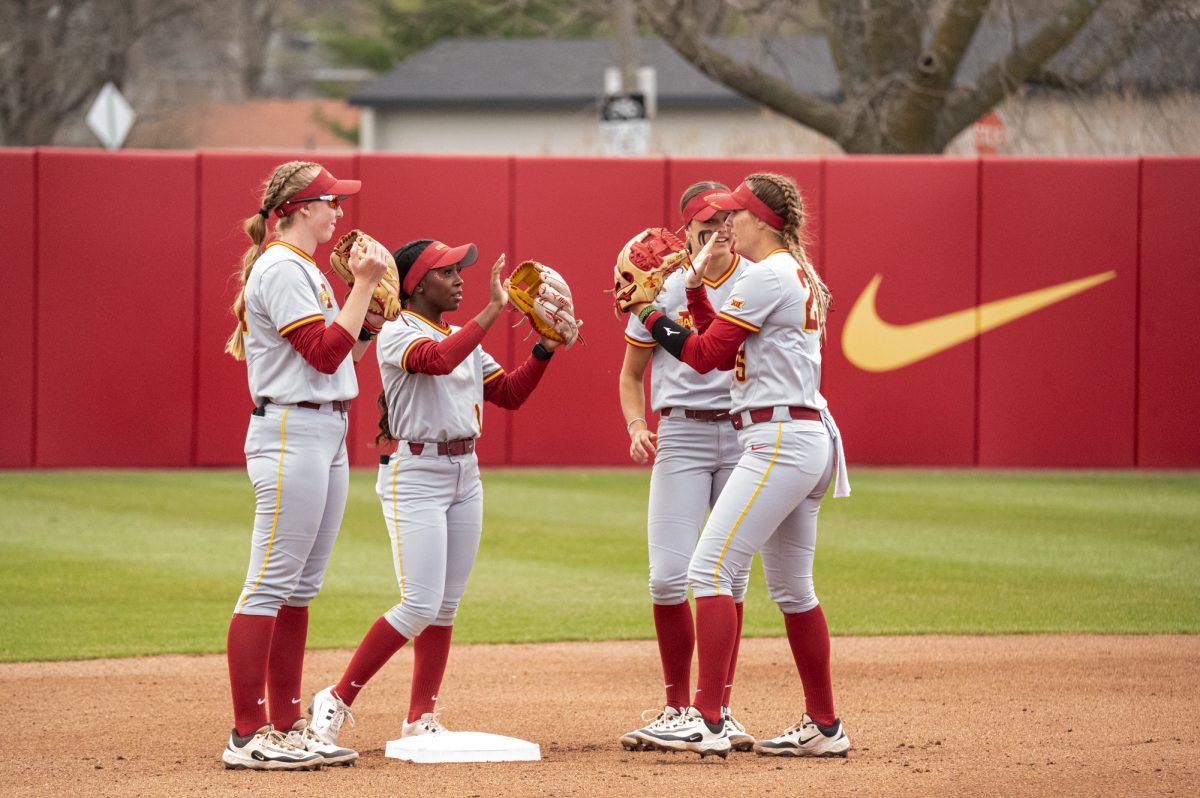- App Content
- App Content / News
- News
- News / Politics And Administration
- News / Politics And Administration / State
Candidates clash with media
Hillary Clinton thanked Katy Perry for joining the pre-JJ dinner rally in Des Moines Oct. 24.
November 22, 2015
The Iowa caucuses are on the distant horizon, but the fervor associated with an impending presidential election has already reared its head.
Halftime shows and commercial breaks are filled with stump speeches, hopeful promises and the all too familiar ‘Don’t vote for that guy.’
But as certain candidates begin to run out of money and support, and the field begins to narrow, the intensity of the spotlight only gets brighter for those who remain. How candidates deal with this scrutiny from the media has a lot to do with the longevity of their campaigns.
“They’re the inquisitors, in a sense,” said Mack Shelley, professor of political science. “[The media] is something that is meant to keep everybody else honest.”
Ben Carson and Hillary Clinton are only a few of the most recent candidates whose veracity has come into question as of late.
Clinton was questioned for hours last month in a congressional hearing about the way she handled the events surrounding a 2012 attack on an American diplomatic compound in Benghazi. Clinton’s use of a private email account during her time as secretary also came into question.
Bernie Sanders, Clinton’s chief rival for the Democratic nomination, said Americans are “sick and tired” of hearing about her emails and are more concerned with fixing the issues that affect them.
During last week’s Republican debate on Fox Business, Carson thanked the moderators — with a a touch of sarcastic humor — for not asking him about something he said in the 10th grade.
The comment came after recent investigations by the media — capped off with an intense press conference, where the often mild-mannered Carson aggressively questioned the media’s methods — dove into the accuracy of certain claims regarding Carson’s past that he mentioned in his memoir.
This kind of frustration spans both parties, and while mishandling the pressure from the media can often lead to the downfall of a campaign, the media itself has faced scrutiny of its own from politicians and voters.
Michael Dahlstrom, associate professor of journalism and communication, pointed out that while the media is expected to cover certain events such as the debates, it also has the ability to frame those events in a subjective manner, and people tend to seek out sources that agree with views they already hold.
“If personal bias is already politically polarized, and the media doesn’t lean the same way, people might get upset,” Dahlstrom said.
On the other hand, real estate mogul Donald Trump can attribute much of his early success to the media, enjoying success in the polls and appearing to be the Republican nominee front-runner for now.
“The media can make or break a candidate like [Trump],” Shelley said. “If [the media] stopped paying attention to Trump, would he still have an impact?”
It’s hard to imagine a candidate such as Trump simply disappearing from the spotlight, but for some candidates — most recently Bobby Jindal — the attention, money and support has disappeared along with the hopes of a 2016 bid.
While more candidates are certain to drop from the race, the number of ads, promises and times people will hear, ‘Don’t vote for that guy,’ is only going to increase.
“The media has a difficult job in covering politics,” Dahlstrom said.







